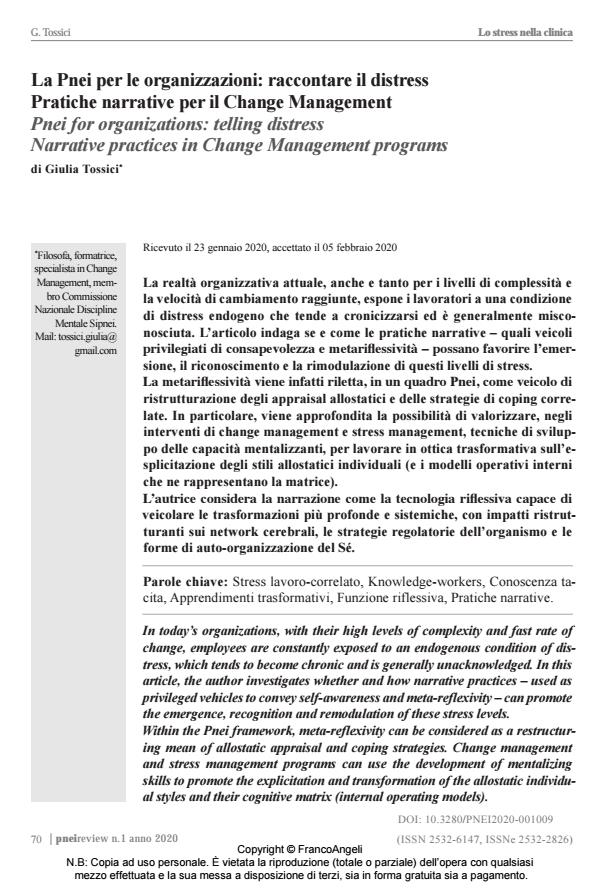Pnei for organizations: telling distress Narrative practices in Change Management programs
Journal title PNEI REVIEW
Author/s Giulia Tossici
Publishing Year 2020 Issue 2020/1
Language Italian Pages 10 P. 70-79 File size 103 KB
DOI 10.3280/PNEI2020-001009
DOI is like a bar code for intellectual property: to have more infomation
click here
Below, you can see the article first page
If you want to buy this article in PDF format, you can do it, following the instructions to buy download credits

FrancoAngeli is member of Publishers International Linking Association, Inc (PILA), a not-for-profit association which run the CrossRef service enabling links to and from online scholarly content.
In today’s organizations, with their high levels of complexity and fast rate of change, employees are constantly exposed to an endogenous condition of distress, which tends to become chronic and is generally unacknowledged. In this article, the author investigates whether and how narrative practices - used as privileged vehicles to convey self-awareness and meta-reflexivity - can promote the emergence, recognition and remodulation of these stress levels. Within the Pnei framework, meta-reflexivity can be considered as a restructuring mean of allostatic appraisal and coping strategies. Change management and stress management programs can use the development of mentalizing skills to promote the explicitation and transformation of the allostatic individual styles and their cognitive matrix (internal operating models). The author considers "narrative" as the most powerful reflective technology, capable of producing systemic transformations within the Self, with restructuring impacts on the brain networks, the regulatory strategies of the organism and the self-organization patterns of the mind.
Keywords: Work-related stress, Knowledge-workers, Implicit knowledge, Transformative learning, Reflexive function, Narrative practices
- The Role of Emotional Granularity in Critical Reflexivity: A Reflexive Diary Study Valentino Zurloni, Giulia Tossici, Raffaele De Luca Picione, in Behavioral Sciences /2026 pp.279
DOI: 10.3390/bs16020279
Giulia Tossici, La Pnei per le organizzazioni: raccontare il distress Pratiche narrative per il Change Management in "PNEI REVIEW" 1/2020, pp 70-79, DOI: 10.3280/PNEI2020-001009